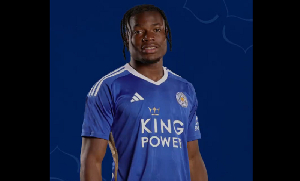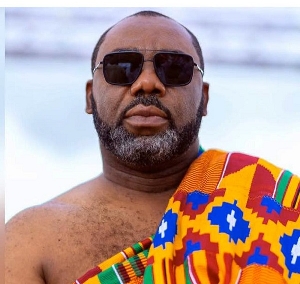General News of Tuesday, 6 May 2003
Source: The Guardian (UK)
HSBC's jet deal turns sour in Ghana
Bank makes $1m out of loan for unwanted presidential aircraft
One of Britain's biggest banks, HSBC, is making $1m out of a controversial loan to buy an African president a personal jet, according to documents obtained
The bank is insisting on taking payments from the Ghanaian government, even though the lucrative deal has turned sour. A new regime in the country - one of the so-called heavily indebted poor countries (HIPCs) seeking debt relief on loans - has stopped payments and is refusing to use the jet. As recriminations fly, HSBC is continuing to collect the instalments it is owed from a dollar account containing $14.5m (about ?9m) paid by the United Nations for Ghana's peacekeeping services in Sierra Leone and Lebanon.
The contents of this UN account in New York were handed over as security by the country's former ruler, President Jerry Rawlings. The second-hand 14-seater Gulfstream III executive jet was formerly owned by the American pharmaceuticals giant Johnson & Johnson.
Shortly before he lost office in 2000, Mr Rawlings, a former flight lieutenant, was present at Accra's Burma Camp military base, enthusiastically taking the controls of the plane as he practised repeated take-offs and landings.
The new government of John Agyekum Kufuor, who took office in January 2001, challenged the transaction and cancelled repayments on the $20m debt. The figure represents about 10% of the Paris Club debt relief received by Ghana last year.
Ministers, who describe the deal as "sleazy", have criticised the five-year offshore lease-purchase transaction at commercial rates of interest as wasteful in a poor country.
According to an auditor general's report earlier this year, the government of Ghana got no particular advantage from borrowing the money, and could have bought the plane outright from available funds. The bank stood to make in the region of $1m on the deal, including interest at 0.65% above base rate, and arrangement fees of $665,000.
The deal was personally arranged with the bank's New York division by the previous regime's finance minister, Kwame Peprah, who was jailed last week on separate charges.
The bank has claimed "client confidentiality", saying only that "we are in discussion with Ghana".
But it is understood that bank officials treated the deal as a simple commercial arrangement, and regard themselves as now entitled to draw on the UN peacekeeping account to get the money.
HSBC, which says its African operations further the social wellbeing of the continent's people, has offered to arrange the resale of the jet, whose market value has now fallen to about $7m - for a further fee of $75,000 .
Senior Ghanaian officials say the bank has refused to provide full details of the transactions to allow a fair resolution of the dispute.
"They continue to be very cagey with us," Kwabena Agyepong, the president's spokesman, told the Guardian.
"We want to abrogate the lease and let them take the plane away."
Mr Agyepong said the role of Mr Peprah was under investigation. The former finance minister, along with two other former officials, was jailed for four years last week for his separate role in permitting an allegedly fraudulent $20m loan to go ahead on a rice project.
HSBC, through its African bank Equator, still does big business in Ghana. It is currently leading a $40m loan facility for the agro-processing and salt production industries, with the promise of another $100m.
"It is a very sensitive issue, but they [HSBC] think they have us over a barrel," said Mr Agyepong.
Details of the jet deal were so complex, with fees levied at every turn, that they have drawn fire from sections of the Ghanaian media hostile to Mr Rawlings.
Gulfstream of Georgia took the 13-year-old plane back as a trade-in from Johnson & Johnson in New Jersey, then arranged the resale through a Swiss broker, Transair Trade. Transair's joint owner, Charles James, now running a similar business in Lyon, refused to discuss his role. "It is a private matter," he said. Gulfstream charged more than $2m to refurbish the plane to Mr Rawlings's design, with CD and video systems, and to provide spares.
Meanwhile HSBC in New York set up a tax-free Cayman Islands vehicle to purchase the plane and resell it to Ghana once the full loan was paid off in five years - essentially a form of hire purchase.
In an interview last year with an Accra newspaper, Mr Peprah said the government did not have the money for an outright purchase and was unable to get more favourable terms for a loan. He said it was a "straightforward acquisition".
Modern finance, he observed, had become "so complicated that it is difficult to explain to the ordinary man ...
"It is not a thing you bring to the general public."












